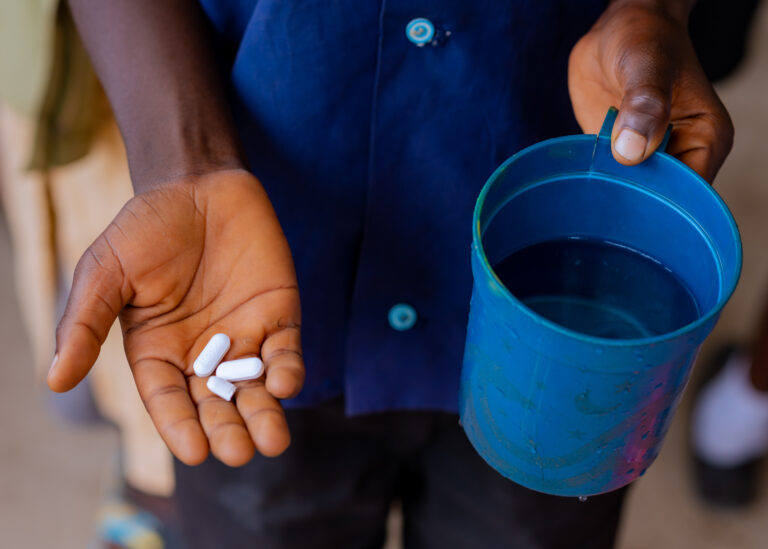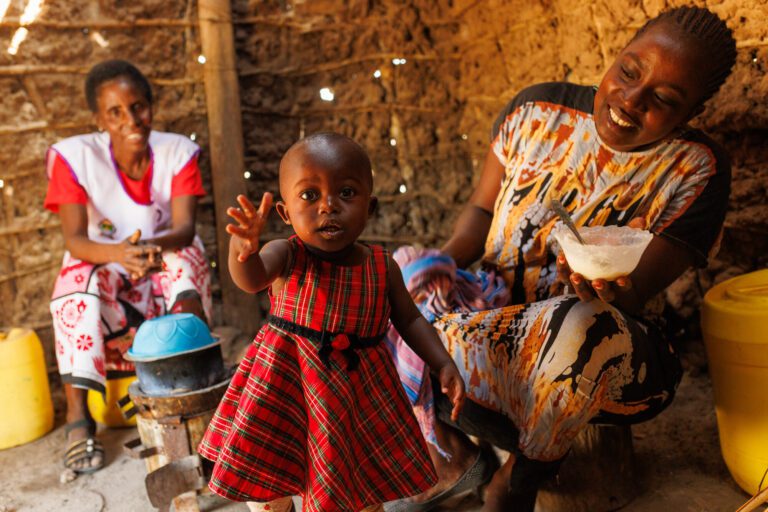Women at the heart of our work
Women are the cornerstones of many families. They oversee home life — raising the children, preparing meals, even fetching water — and they bear responsibility for part, if not all, of their families’ livelihoods. In times of struggle, women often put others’ needs ahead of their own.
In many ways, women are society’s glue: they hold families together while also uniting neighbors, businesses, and entire communities.
It’s no surprise, then, that women hold a central place in the mission of Helen Keller Intl. In many of the countries where we work, economies and entire cultures are male-dominated. Women are routinely excluded from making key decisions and pursuing economic opportunities. As a result, they find themselves having to do more with less. Yet evidence has shown that when women are able to earn money, they use their incomes to support the health and well-being of their families first.
Empowering Women to Lead
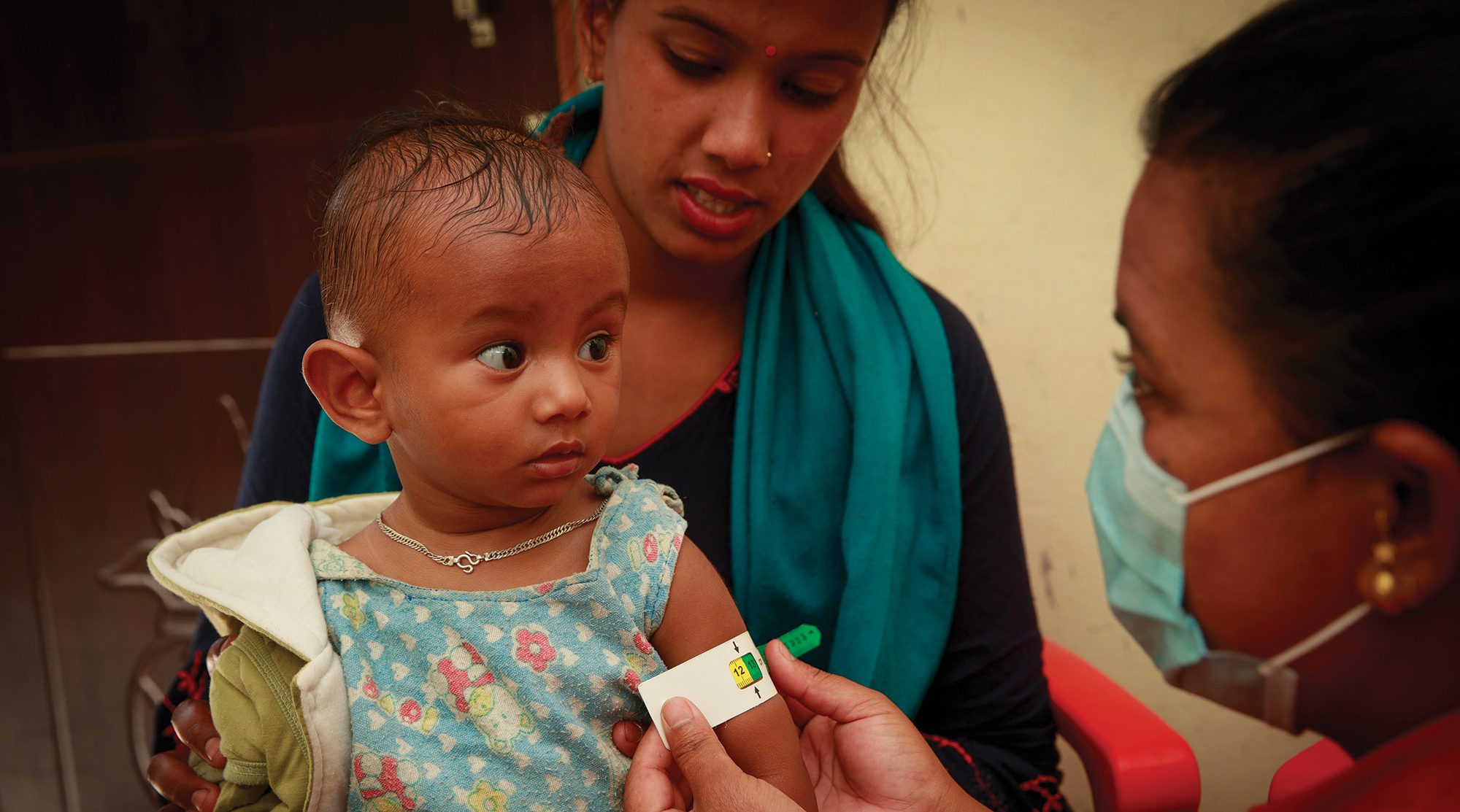
Today, the combined impacts of COVID-19, extreme weather events stemming from climate change, and the insecurity caused by armed conflicts, particularly the war in Ukraine, are making it especially difficult for families living in poverty to make ends meet — even survive. Our efforts to provide women with the education, tools, and training they need to protect their own and their families’ health are more urgent than ever. Fortunately, with our generous Helen Keller community, we are ensuring that more women have the ability to build the resilience they need to weather current crises — and prepare for crises to come.
Helen Keller’s work begins with women — they are prioritized, supported, and in many cases, lead our work.
Throughout the organization, women lead the way. For the past 17 years, Kathy Spahn has served as Helen Keller’s president and CEO — and has stood out in an international nonprofit sector that is primarily male-led. In fact, much of Helen Keller’s in-country work is also led by women. But as Nigeria Country Director Philomena Orji notes, partners will often speak to her male colleagues first and are surprised to learn that she holds such a prominent role. In contrast, her leadership, compassion, and confidence are an inspiration to Nigerian women and girls.
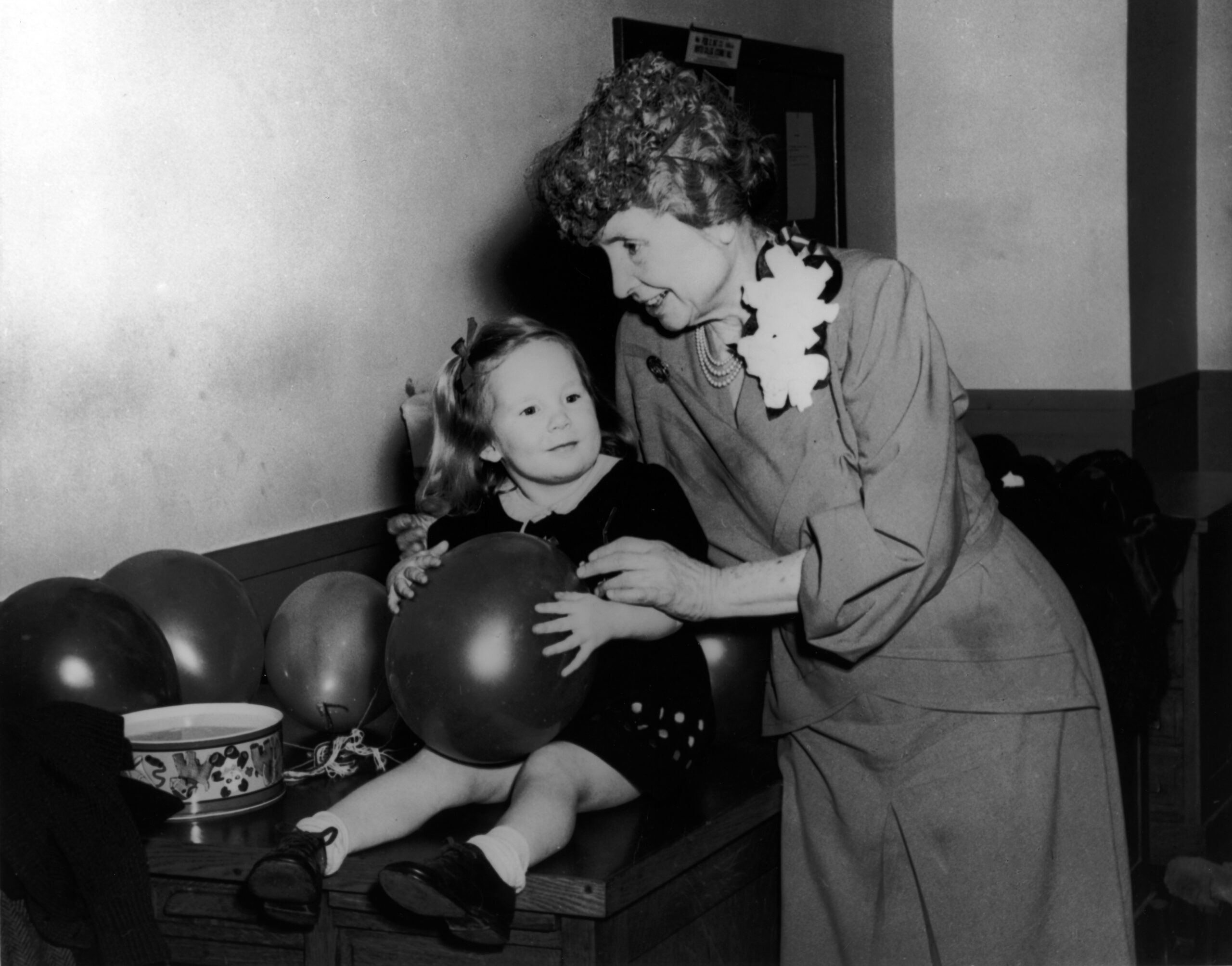
Female leadership is in our DNA — starting with Helen Keller herself. Having co-founded the organization that now bears her name, she also traveled extensively as our special ambassador overseas. Her dedication to helping others — people with disabilities, women, people of color, laborers, and those living in poverty — continues to inspire our leadership, our work, and the partnerships we build worldwide.
In many parts of Africa and Asia, where a lack of nutritious foods often results in high rates of vitamin A deficiency, Helen Keller trains local women to take the lead as healthcare workers who provide twice-yearly doses of vitamin A to children under five and engage in many other vital interventions. Because these women are honored and trusted by their neighbors, they are seen both as advisors with valuable expertise and supportive peers for moms eager to improve their families’ health.
Building a Future: Vitamin A, Farming, and Community
In Kenya, for example, only 20 percent of young children get enough vitamin A through their diets. Yet, as program manager Esther Njeri explains, in districts where Helen Keller has trained health workers to go door-to-door to provide vitamin A supplements, more than 80 percent of children are now protected.
Helen Keller also supports women with agricultural education and resources, helping them grow crops that are rich in vitamin A and other nutrients. These women then train their neighbors to do the same. Start-up supplies, hardy seeds, and hands-on training in climate-resilient farming techniques could not be more essential in regions where agriculture is subject to increasing threats from floods, droughts, and other extreme weather.
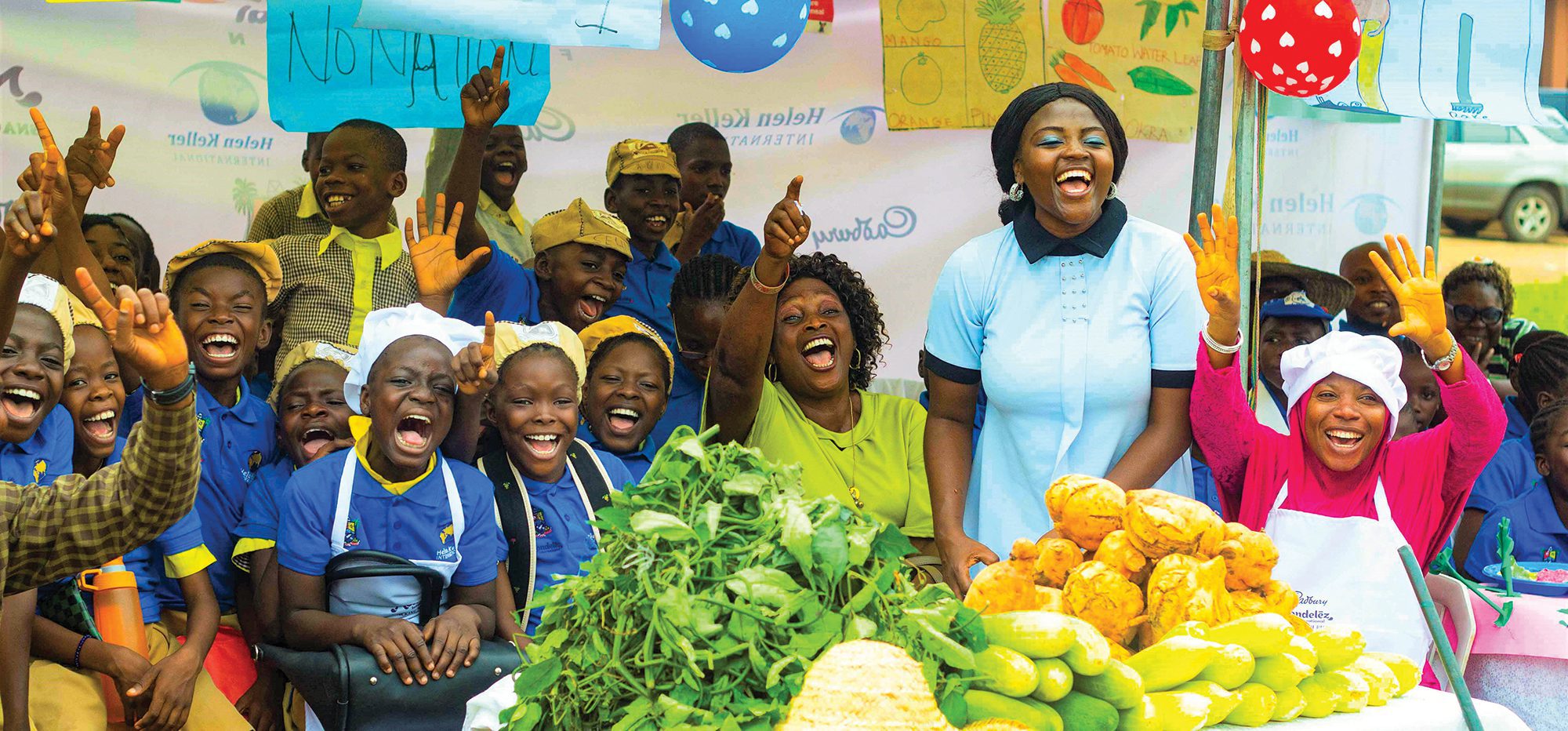
In Burkina Faso, Kacoara’s sweet potato garden has been so successful that she can now afford better education opportunities for her children and put a new roof over their heads — literally! She has also inspired and aided other women in starting their own gardens.
With a focus on ensuring proper nutrition in the first 1,000 days (through a child’s second birthday), we are helping mothers protect their babies’ health — and their own — during pregnancy and afterward. In Kenya, mothers like Patience participate in a peer-to-peer learning group called “Binti to Binti” (“Sister to Sister” in Swahili), which is designed to help young mothers support each other in embracing good nutritional practices. And in Mozambique and elsewhere, mothers learn about the superior nutritional value of breastmilk, along with effective breastfeeding methods.
Building Resilience That Lasts for Generations
By empowering women — as leaders of households and entire communities — our Helen Keller donor community is helping to build transformational and sustainable change. Thanks to them we can support strong role models and provide the practical tools — peer counseling, nutrition education, healthcare, and climate-smart seeds and farming techniques — that help to build stronger futures.
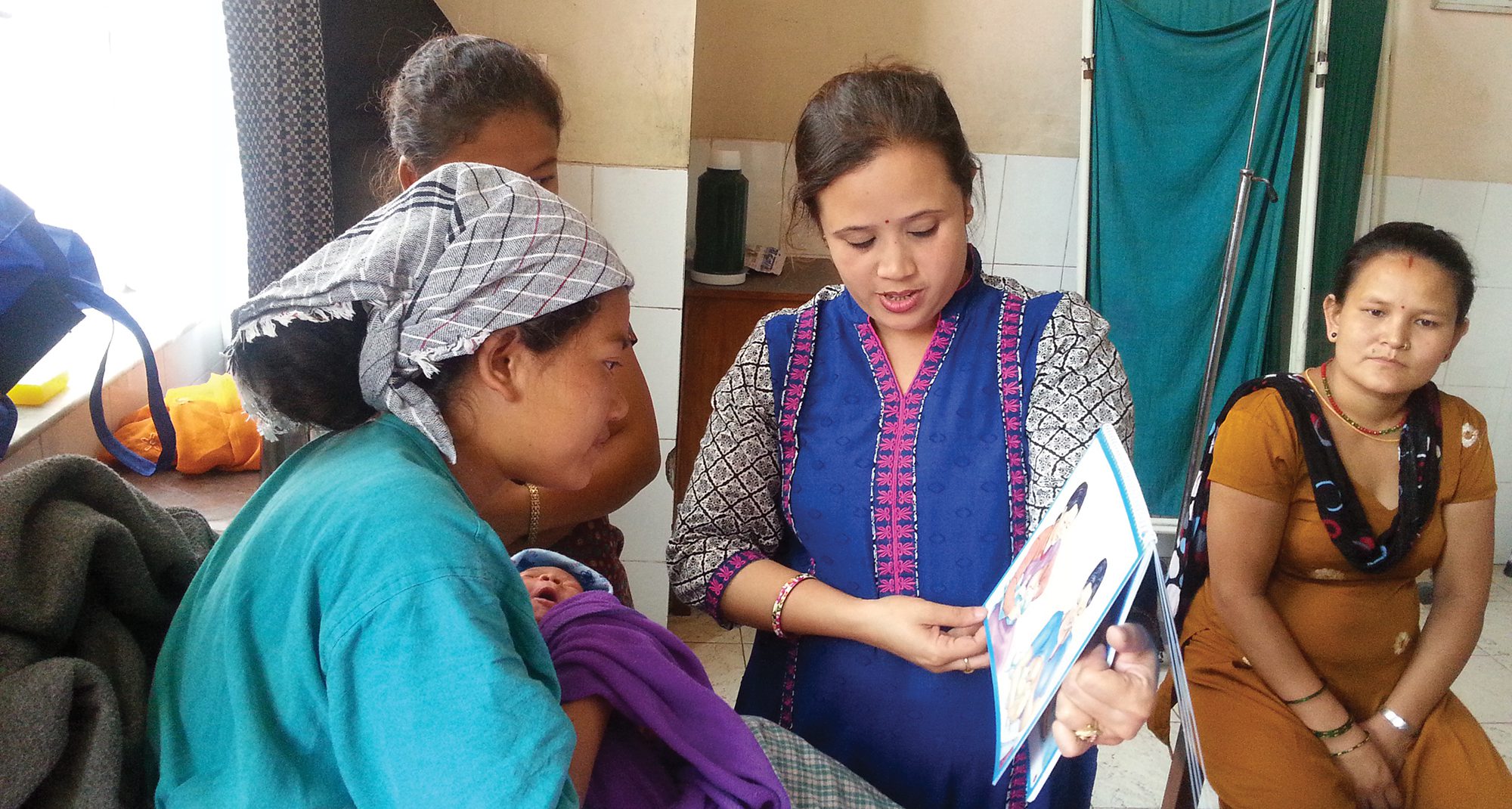
Help us continue to empower women and families to create lasting change in their own lives.

